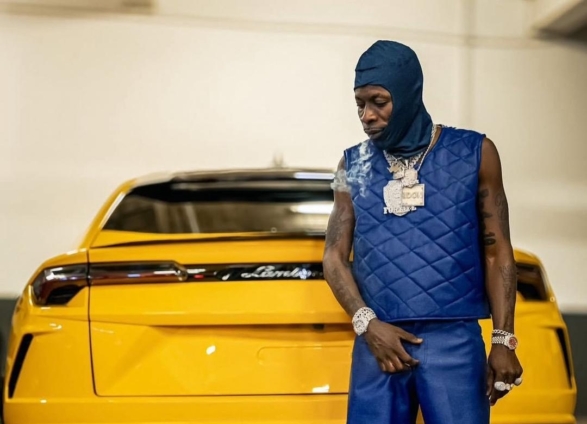The Economic and Organised Crime Office (EOCO) has confirmed that it conducted a lawful search at the residence of Ghanaian dancehall artist Shatta Wale, seizing a 2019 Lamborghini Urus linked to an international fraud case.
The operation, carried out in collaboration with the U.S. Federal Bureau of Investigation (FBI) and the Department of Justice, was part of an investigation into convicted fraudster Nana Kwabena Amuah, currently serving an 86-month prison sentence in the U.S. for financial crimes. EOCO stated that the luxury SUV was among assets acquired with illicit funds and was found in Shatta Wale’s possession at his Trassaco Valley home. The agency emphasized that the search was conducted professionally and without incident, though the musician reportedly pleaded for discretion, citing the vehicle’s importance to his brand.
Despite Shatta Wale’s initial resistance, he voluntarily surrendered the car, which is now in EOCO’s custody pending a formal Mutual Legal Assistance (MLA) request from U.S. authorities. The Lamborghini is part of a $4.7 million restitution order against Amuah, who defrauded victims through romance scams and business email schemes. EOCO clarified that its officers were armed during the operation as part of standard protocol but denied any intimidation tactics. However, Shatta Wale took to social media to accuse EOCO’s Executive Director, Raymond Archer, of leading an armed raid on his home, calling it an act of humiliation with potential political repercussions.
The musician’s outburst has sparked mixed reactions, with some questioning EOCO’s approach while others support the agency’s efforts to combat cross-border financial crimes. EOCO maintains that the seizure was justified under Ghana’s Proceeds of Crime Act and forms part of broader anti-money laundering measures.
Meanwhile, the agency has identified Shatta Wale and a former National Signals Bureau (NSB) officer as persons of interest, stating that both will be invited for further questioning. The case highlights growing international cooperation in asset recovery, as Ghana strengthens its legal framework to tackle organized crime.
As the investigation unfolds, the incident raises questions about due process, celebrity influence, and the challenges of enforcing financial crime laws. While EOCO insists its actions were lawful and necessary, Shatta Wale’s allegations of intimidation could fuel public debate over law enforcement conduct.
The case also underscores the risks of high-profile individuals associating with assets of questionable origins. With the Lamborghini set to be repatriated to the U.S., the outcome may set a precedent for future cross-border asset seizures in Ghana’s fight against economic crimes.



